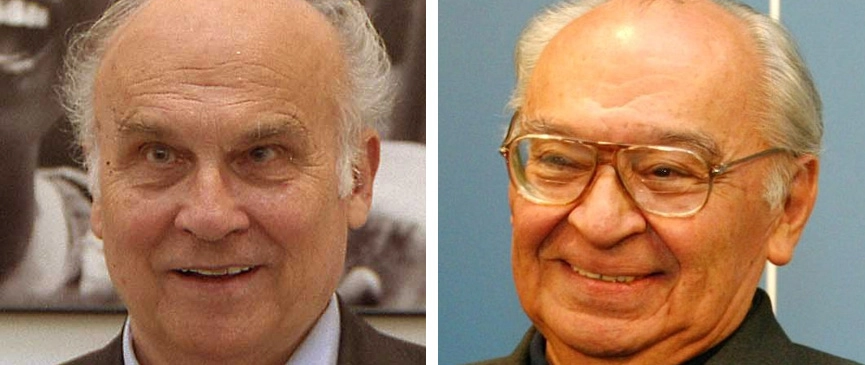Main content
Ryszard Kapuscinski and Gustavo Gutiérrez Prince of Asturias Award for Communication and Humanities 2003

Ryszard Kapuscinski (Pinsk, Belarus, 1932 – Warsaw, Poland, 2007) began studies at the University of Warsaw in 1951, where he studied History and earned his M.A. He taught at the universities of Caracas (1978) and Philadelphia's Temple Hall University (1988) as visiting professor, and as a reader at Harvard, London, Canberra, Bonn and British Columbia University in Vancouver (Canada).
Between 1959 and 1981 he worked in journalism as a correspondent for the Polish Press News Agency in Africa, Asia and Latin America, collaborating with such publications as Time, the New York Times and Frankfurter Allgemeine Zeitung. He is considered one of the world's top reporters, a person about whom authors like Susan Sontag and Paul Auster said, in their nomination for his candidature, that, "I cannot think of another living writer, novelist, poet or essayist whose work is more important to me". He sat on several editorial boards, and since 1962 combined his work as a journalist (inspiring García Márquez to label him "an authority on the subject") with his literary activities. He is the author of nineteen books, of which nearly a million copies have been sold, and some of which have been translated into over thirty languages. The Bush, Polish Style (1962) was his first work, which was followed by others such as The Emperor (1978) - on the decadence of Haile Selassie's reign in Ethiopia - , The Sha of Shahs (1982), The Soccer War (1992), Lapidarium (1990), Imperium (1994) - on the break-up of the Soviet Union -, Ebony (1998) - on the future of the African continent - as well as Z Afryki (Out of Africa) (2000), a photograph album.
Invested doctor honoris causa for the University of Silesia in 1997, he was won various awards for his literary creation, including the Alfred Jurzykowski Award (New York, 1994), the Hansischer Goethe (Hamburg, 1998) and the Imegna (Italy, 2000).
Gustavo Gutiérrez Merino (Lima, Peru, 1928 - 2024) founder and director of the Bartolomé de las Casas Institute, in Lima, he was the first person to synthesize and draw together the ideas of the Theology of Liberation, coining and defining the term in a conference given in 1969 and in a book published two years later. He is a man with a solid humanistic, theological and pastoral training (he has studied Medicine, Arts, Philosophy, Psychology and Theology) and is at present parish priest in Lima's slum quarter of Rimac, having studied in Lyon, Louvain, Rome and Paris, and lectured in Theology at the Universidad Católica de Lima.
He is considered one of the most spiritual of the writers on the Theology of Liberation, managing to steer clear of the radicalism that other theologians have become embroiled in. He bases his ideas on solid Biblical foundations, and proposes that the liberation preached by Christ, rather than being purely spiritual, also involves liberation from earthly injustice, leading on to a belief that such liberation requires profound reform of the present-day political structures of Latin America, the continent at the hub of the Theology of Liberation.
Doctor honoris causa at several universities (including the University of Nimega in Belgium, King's College and Haverford College in the U.S.A., Switzerland's Fribourg, Germany's Tubingen Universities, and Quebec University in Canada, amongst others), he is the author of more than ten books, including, to name just some, A Theology of Liberation, The Truth Shall Make You Free, and In Search of the Poor of Jesus Christ. He has been awarded such distinctions as the Juan Mejía Beca Prize (Peru, 1993) and the Order of the Knight of the Legion of Honour (France). He has been a member of the Peruvian Academy of Language since 1995.
End of main content
